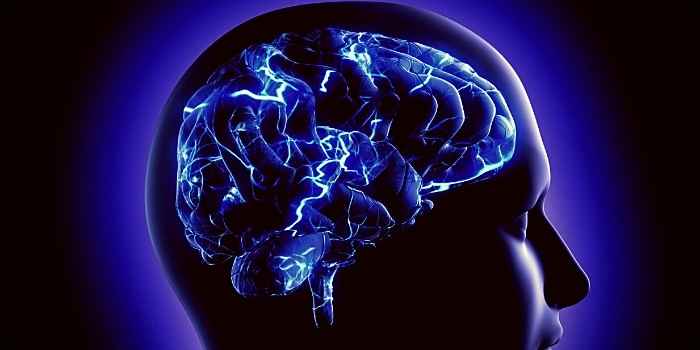
Did you know sleep deprivation affects millions of people?
Not just that, the quality is sleep matters to your well-being, emotions, and even longevity.
Optimizing melatonin levels is one of the most critical aspects of quality sleep. Melatonin is one of the most essential natural antioxidants and melatonin also increases the production of glutathione and other antioxidants like superoxide dismutase and catalase in the human body.
Research shows melatonin helps you get more quality sleep, makes you younger, increases your immune system, and fights cancer.
Not just that, optimizing deep sleep also matters for growth hormone-secreting. Growth hormones help lose weight, rejuvenate muscle growth, and protect cells.
Low-level melatonin leads to deprivation of growth hormone. Also, several neurotransmitters are involved in sleep and waking patterns: acetylcholine, norepinephrine, serotonin, histamine, and orexin. (source)
Did you know the quality of sleep matters for overall health, well-being, and hormones productions?
Sleep: Deprivation affects people.
- Lack of sleep might cause you to eat more. Lack of sleep leads to affect your hormone level. You’ll feel more hungry during that day.
- Sleep deprivation also affects your mood. Research shows lack of sleep might reason your sadness, anger, frustration, and low mood. They found people who has sleep problem tend to have a less positive attitude. (source)
- The research, 10.000 people with sleep problems lead to developing depression. (source)
- Did you know that sleep deprivation (4-5hours sleep) increases the risk of early death? (source)
The scientific evidence is clear. However, how can we optimize your sleep quality?
Let’s dive into it.
The Things You Should Know
When it comes to optimizing sleep, there are things you should know.
- Melatonin
- Cortisol
- GABA / Magnesium, B6 and Zinc
- Serotonin (related to melatonin)
- Brain waves
- Blue Light
These are the things mostly related to your deep sleep.
To optimize your sleep, you need to understand how the brain works.
Science Of Sleep: Brain Waves

Brainwaves are the key to predicting and understanding different aspects of human performance. Whether it’s physical, emotional, or cognitive, every person has certain types of brainwaves that are more active during their day.
Our brain waves changes depending on the time. For example, our brain waves become more “slow” waves, such as theta, when night comes.
We increase alpha brain waves by relaxing or consuming L-theanine-rich foods like black tea. This helps you get more focused while calm.
The brain waves affect what we eat, think, and even act. Optimizing brain waves is crucial for sleep and our mood, cognition, and emotional well-being.
You can change your brain waves with good strategies such as meditation, hypnosis, and others things. However, sometimes binaural beats might help.
Brain Frequency: Slow-Wave Sleep, and Delta Brain Waves
For deepest sleep, delta brain waves play a crucial role. Slow-wave sleep (SWS), often referred to as deep sleep, consists of stage three of non-rapid eye movement sleep.
Our stress levels and emotions vary depending on the day and circadian rhythm.
Delta brain waves can help you fall into a profound and restful sleep and more rejuvenation because of the growth hormone secreted. (source)
Before, it would be best if we knew what kind of things make hurt our brain waves. Avoid any addiction like taboo, alcohol, and others for brain waves.
“Delta brain waves help you get more “growth hormone” secretion, enabling you to get the benefits. “
How Can You Optimize Your Brain Waves?
Good news: There are tools available to optimize brain waves.
Bad news: It might need time.
However, optimizing brain waves needs work, especially if you want long-term strategies.
Meditation, Calmness, Serotonine, and Brain Waves

All of our topics are covered by meditation. Why?
Because it works! There is not just one. Tons of meditation techniques are available on the internet.
Research shows that after eight weeks of meditation helps you get more relaxed and calm and lower your stress.
Long-term meditation helps you get more “grey matter” in your brain.
Meditation also helps you see the world more positive and different way. Research shows that it affects the brain’s “positive” side to stimulate it. (source)
However, you will increase your creativity level, especially with guided meditation and visualizing!
We need to create a daily routine for meditation. Starting with small steps daily, 5 to 10 minutes makes a big difference. The key is consistency.
2- High Level Of Stress and Cortisol: Impair Sleep Cycle, Good Night Sleep, and Cause Restless

Stress is common. We can’t get rid of stress completely.
Acute stress is even healthy. But when it comes to chronic stress, it is detrimental. Did you know how many people suffer from chronic stress and stress-related disease?
Stress causes depression, anxiety, and insomnia.
Chronic stress causes digestive problems and malnutrition. Besides, stress affects your brain too! It activates the “amygdala,” the area that controls the fear center.
As we see, lowering and optimizing your stress level is critical for our sleep quality.
Why is stress related to our sleep quality?
High cortisol suppresses the production of the melatonin hormone. We talked earlier. Melatonin is crucial when it comes to sleep. Caffeine itself increases cortisol, and it will make the worst falling asleep. And too much cortisol also affects rem-sleep and leads to sleepiness.
People who have high-stress levels tend to become more catabolic and lose protein.
Why matters?
Because the amino-acid L-tryptophan is the critical component for sleep, L-tryptophan converts serotonin THAN serotonin into melatonin at night.
Plus, high stress also makes you lose your magnesium level. Magnesium is responsible for more than 250 reactions in your body! Included serotonin production.
Related: Here The Connection Between Serotonin and Mood
Chronic stress is a catabolic process. You need to optimize your nutrition intake to avoid nutrition deficiency. Stress depleted your B, C, and other minerals such as magnesium.
What is the best magnesium for sleep?
There are tons of magnesium supplements available on the market. Research has shown that a new form of magnesium called “Magnesium acetyl taurate” helps you get more quality sleep. Magnesium Acetyl Taurat can cross the blood-brain barrier. Increase the amount of magnesium in the brain. However, magnesium citrate with B6 is also helpful for sleep.
3- Good Sleep, and Well-rested: GABA

Gamma-aminobutyric acid (GABA) is an amino acid in your brain which helps you get calmer.
Did you know people who have low levels of GABA tend to have more anxiety?
When it comes to sleep, GABA has a critical role. When we are anxious and overthinking, our brain chemicals go out of balance.
Low-level GABA makes you get more anxious, even craving alcohol.
low-levelOptimizing GABA is critical for deep sleep and relaxation.
Research showed that 300 mg GABA before sleep helps you more deep sleep after four weeks. (source)
However, GABA supplements can’t reach the brain easily because of the blood-brain barrier.
If it is the case, you can optimize your GABA level by consuming magnesium, B6, and L-theanine.
L-theanine also helps you carry serotonin in the blood-brain barrier.
Related: Relaxing, and Focusing: GABA and Glutamate in the Human Brain
So double win.
- GABA will help your hours of sleep via increasing rem sleep, and you will feel better sleep at nighttime. Healthy sleep is essential for physiological health.
- Slow-waves sleep is also crucial for mental health because of its vital benefits. Your metabolism mainly depends on how deep you sleep. GABA will help you feel calm.
- Chronic sleep deprivation and sleep deficit cause most illnesses. If you are in chronic sleep deprivation, you will also have blood sugar problems, which lead to increased appetite.
GABA enhanced the catabolism of serotonin into N-acetylserotonin (the precursor of melatonin) in rats. It is thus suspected that GABA is involved in the synthesis of melatonin and thus might exert regulatory effects on sleep and reproductive functions.
https://en.wikipedia.org/wiki/%CE%93-Aminobutyric_acid
4- Improve Sleep, and Beat Poor Sleep With Serotonin

Most people heard about this hormone. We call it “happy” hormones.
Our brain chemicals need balance. Some people tend to have less serotonin because of genetic factors or diet. Some of them tend to have low GABA or dopamine.
However, as we deep-dive, an optimum level of serotonin is crucial when it comes to quality of sleep.
After at 9, our body uses extra or current serotonin in the blood to convert melatonin. This converting process needs other vitamins like B6, magnesium, vitamin c, and zinc.
More, if you have a high cortisol level in your blood, the process becomes not efficient.
The research found that 5-HTP ( serotonin precursor ) and GABA supplements might help get faster sleep. (source)
However, we don’t suggest 5-HTP for long-term usage because it suppresses other neurotransmitters such as dopamine and adrenaline.
Serotonin is involved in numerous physiological processes, including sleep, thermoregulation, learning and memory, pain, (social) behavior, sex, feeding, motor activity, biological rhythms and possibly others.
Dopamine Disturbance: Sleep-wake cycle
Be careful not to have any stimulants at night. If you have high dopamine at night, it affects your sleep!
Dopamine and serotonin are somehow against each other. We suggest you don’t drink coffee at night and avoid anything distracting your dopamine, such as looking at pornography.
- If you have trouble a night of sleep, this might be because of the low-level serotonin. Serotonin is the main precursor of sleep hormones melatonin
- Stressful life lowers serotonin production, leading to anxiety, panic attacks, and binge eating.
- Nervous-system mostly affected by serotonin hormones. So, optimizing serotonin levels via serotonin-rich foods is excellent for healthy sleep.
5- Can’t Sleep Because Of Blue Lights

We didn’t know Blue light might cause sleep problems.
But, yes, it is. Sleep patterns sleep habits, naps, how much sleep, alertness, and other symptoms are affected by Artificial lights.
First of all, we should understand our evolution. We don’t have any light at “night.” for millions of years. But now, everywhere is artificial light.
Not all light can detrimental affects our sleep. Blue light might be helpful during daylight. It helps you get more focused and increase reaction times.
However, when it comes, it affects our sleep quality.
Research shows that blue night can suppress melatonin production. (source)
- Blue light affects the hypothalamus and disrupts your sleep via suppressing melatonin hormone productions
- The sleep and wake cycle is mainly affected by blue light. blue light at night can disturb people’s internal clock
Another thing that might be helpful is go to sleep.
Other things might help optimize sleep, such as Glycine.
Glycine has a calming effect on your brain. Studies have shown that taking 3.000 gr Glycine before bed helps you better quality sleep. (source)
Our body needs proper body temperature to create melatonin. Glycine helps by lowering body temperature and making you fall asleep. (source)
You can try lavender oil. It might help you get calm without sedating.
For sleep, you can also try Cognitive-behavioral Therapy (CBT). Research showed that CBT lower anxiety, panic and overthinking. (source)
Related: I Changed My Mind About Cognitive Behavioral Therapy. Here’s Why
Sleep Research Shows Pineal Gland is Important Too
The pineal gland is another big topic we might discuss later.
The function of the pineal gland helps you secrete the melatonin hormone. As we get older, the secretion of melatonin starts to get dropped. Also, other aspects affect the pineal gland, such as fluoride and chemicals.
Pineal gland calcification is the real problem. So, to optimize our sleep, we should make sure our pineal gland is working correctly.
- Optimizing the body clock is an important step when it comes to good quality of sleep. That way, avoid as much as possible to the blue light at night or use blue-blocker glasses through the night.
- Regular sunlight in the morning vital for the internal clock
- Do not overeat carbohydrates before sleep
- Moderate your caffeine, and avoid nicotine before sleep because it stimulates adrenalin and dopamine, which lover the production of serotonin and melatonin. Also, exercising before sleep can negatively affect sleep quality
- Too-hot places will lower the quality of sleep, and you can not be able to sleep.
- Getting enough sleep is also crucial for longevity, especially slow waves that will trigger to release of hormones such as growth in humans.
Nevertheless, research shows that probiotic gut bacteria can alleviate depression and anxiety which impair sleep quality, quantity, and overall well-being. Gut microbes have an impact on the production of mood-promoting and calming compounds.
Can melatonin Supplements be helpful for sleep?
Studies show melatonin supplements might be helpful for sleep. However, the study also found there is not much difference between taking high doses to small doses of melatonin. However, taking hormones isn’t the best solution for long-term strategy.
Does 5-HTP help you get more sleep?
Research shows that 5-HTP and GABA might be helpful for sleep. However, long-term using 5-HTP might suppress other brain chemicals such as dopamine and noradrenaline.
Good quality, restorative, refreshed sleep is not just for a healthy body; it’s also affecting your productivity level and well-being.
Optimizing sleep makes you get more relaxed, energetic, and less anxious. We are living in a competitive world. Isn’t being active, less stressed, and productive good for your business or life?
The quality of sleep matters. Take action for this. You will see a significant change in your life!
Does Valerian Root Can Help You Get Sleep
Valerian is a sedative herb that helps you get more sleep. Valerian mainly works on brain GABA receptors and levels. However, it might lead to sedatives for some people and lower daily activities.Great job!
Does exercise help you get more sleep?
Exercise is shown to increase sleep and the quality of life and health. Exercise increases feel-good hormones such as serotonin, endorphins, dopamine, etc. Plus, exercise activates longevity hormones. These hormones protect your body from chemicals and other toxins. With more healthy, we become better brain chemicals and sleep.
Does meditation help you get more sleep?
Meditation might lower stress and increase positive emotions. People who are regularly meditative tend to have good quality sleep.
Optimize Your Life, Body, and Soul